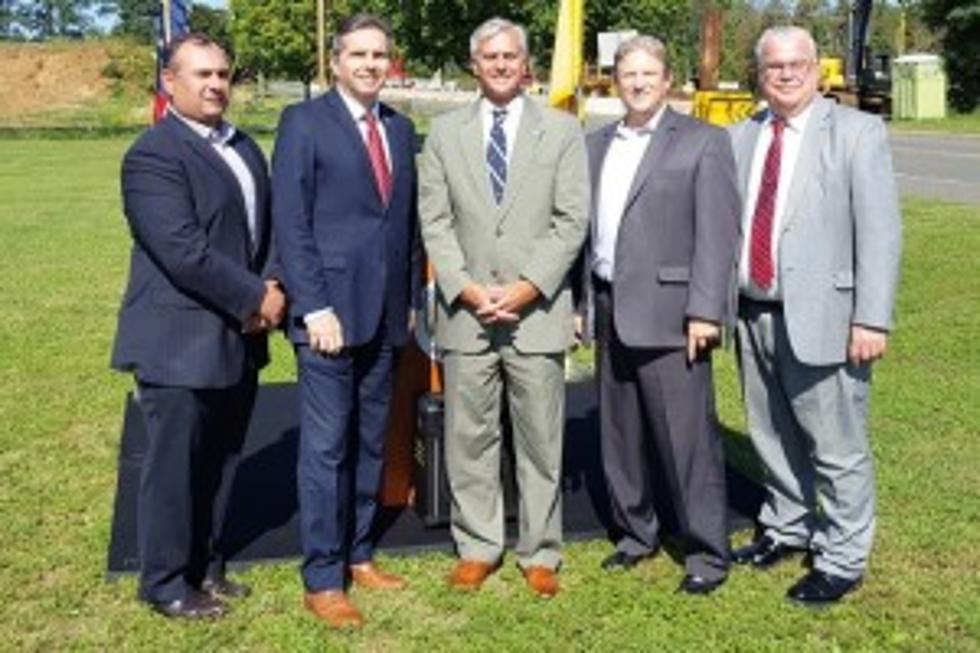
NJ Board of Public Utilities approves Middletown’s application for Micro-grid Study
It would be like having a back-up generator during a major storm. Middletown is one of 13 New Jersey towns approved to start a feasibility study to determine if they can set up a micro-grid for electric power.
The microgrid would link Middletown's 16-critical facilities and ensure their power stays on if the regular grid goes down in order to prevent the impact of widespread outages.
Mayor Gerry Scharfenberger says independent energy production will be critical during blackouts and disasters.
"We're trying to minimize the outages," said Scharfenberger. "Certainly to keep street lights lit and Naval Weapons Station Earle functioning as well as all of the major facilities in town, to keep them running."
The New Jersey Board of Public Utilities grant covers the expenses of the study which will last about a year, once it goes out to bid and a firm begins the study.
The NJBPU approved $2,000,000.00 through the NJ Clean Energy Program to fund the Town Center Distributed Energy Resource Microgrid Feasibility Study Incentive Program.
Scharfenberger explains a couple of the things officials with the firm will examine to determine if Middletown ends up being eligible for the micro-grid.
"They'll see the terrain, certainly the surrounding delivery systems and that sort of thing will be examined and see the feasibility of trying it (micro-grid) here," said Scharfenberger.
He says following Superstorm Sandy they needed to look for a way to get power restored quickly.
"People can deal with a power outage of a few hours, maybe a day or so, but when you start talking multiple days into weeks, that's when pandemonium could break out and you really have a serious safety and security issue," said Scharfenberger.
The critical facilities that would be impacted and see their power remain operation during a disaster would include:
• NWS Earle Waterfront Administrative Area
• Township of Middletown Sewage Authority (TOMSA)
• NY Waterways Ferry Terminal
• Middletown Public Works and CNG Fueling Facilities
• Middletown Municipal Complex
• Public Schools (Bayshore Middle School, Leonardo Elementary
School, Bayview Elementary School)
• Monmouth County Highway Department
• Middletown Fire Stations 3, 4 and 7
• Monmouth County Bayshore Outfall Authority
Should there be a power outage from a blackout or major disaster these critical facilities would have power restored almost instantly and the town would be able to limit the damage and length of any power outage and any effects it has.
"When it (the regular grid) does go down power outages would be a lot smaller in scale," said Scharfenberger. "The reach of the outage should not be what it is in a traditional system and also the duration...it should be back online much quicker."
The proposed microgrid in Middletown has the largest geographic reach among the 13 other projects at 3.5 miles from the New York Waterways Ferry Terminal to the Middletown Public Works and Fast Fill Natural Gas Station.
Here are the other towns who had their applications for the study approved:
Atlantic City, Camden County, Cape May County MUA, Galloway Township, Highland Park, Hoboken, Hudson County, Montclair Township, Neptune Township, Paterson, Woodbridge Township, and the State of New Jersey Department of Treasury with the partners Mercer County, Mercer County Improvement Authority and Trenton.
Atlantic City joins Middletown as two big Shore destinations who feel they would meet the requirements to be awarded this microgrid and be able to help responses in future storms or disasters following its completion.
Atlantic City's, microgrid project would feature the installation of an additional heat and power combo unit at the ACM Energy's Midtown Thermal Control Center (MTCC) to provide a boost to their own critical facilities which include Atlanticare Regional Medical Center, Boardwalk Hall and Ceasars/Bally's Hotels and Casino.
“This grant represents a major step towards providing energy to critical facilities in Atlantic City and adds to our efforts to make the City more resilient from future storm events,” said Mayor Don Guardian.
"Atlantic City is still recovering from Superstorm Sandy," said Guardian. "We understand the critical importance of having an independent energy source and developing a means of minimizing power outages in both scale and duration."
More From WOBM:
More From 94.3 The Point









